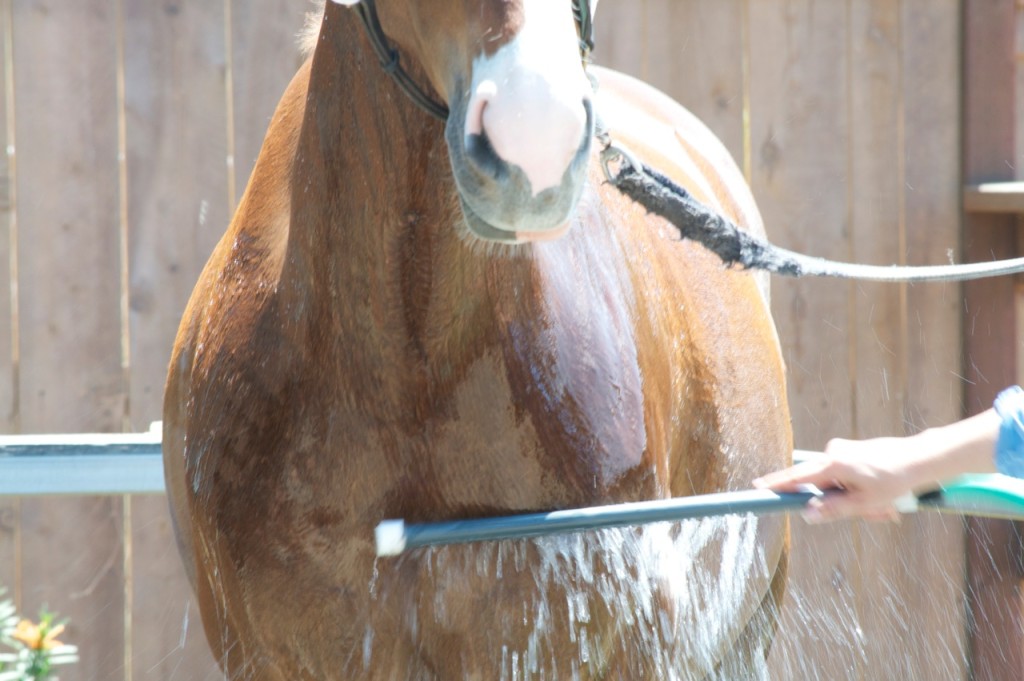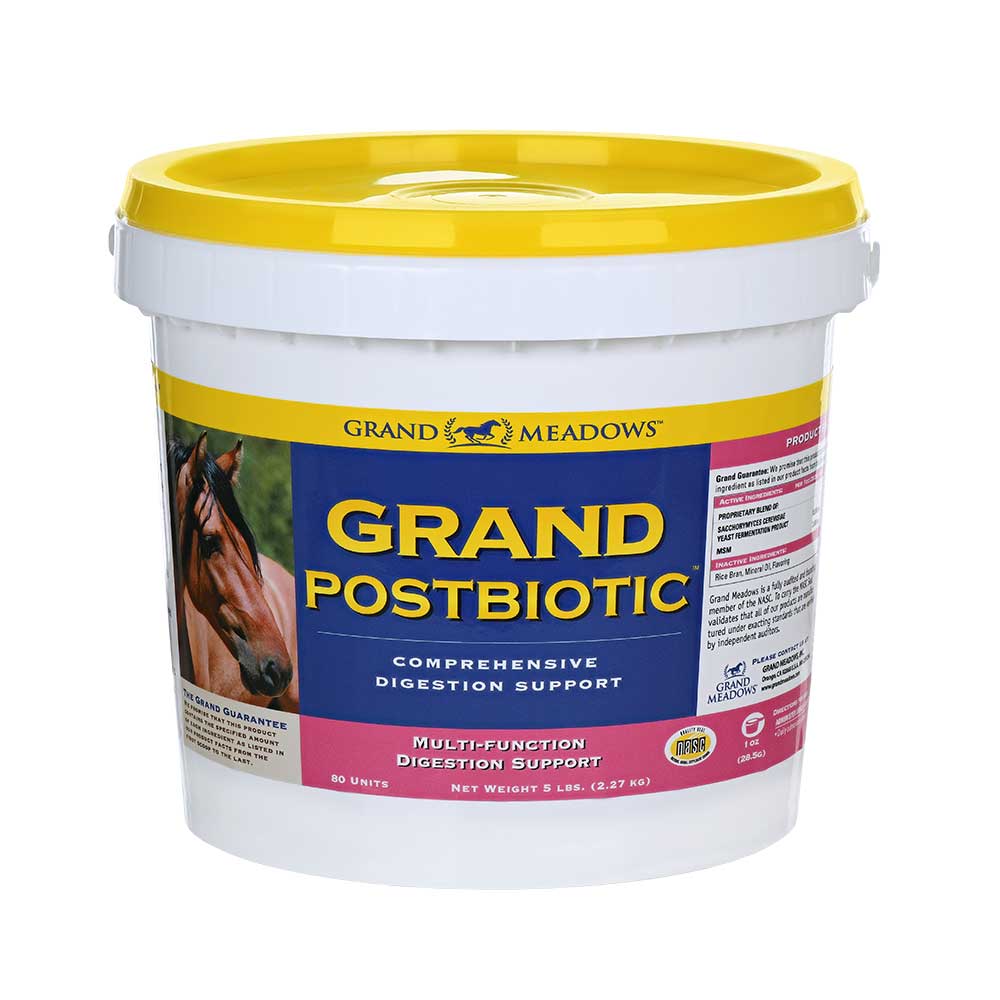Horse Health
Avoid Heat Stress: How to Keep Your Horse Cool in Summer
The dog days of summer mean a few things in the horse world – long and sunny days, high heat and humidity, hours spent at the barn hanging out and riding our horses. Just as we need to stay hydrated and cool, it’s especially important for our horses, since they can’t easily jump in a cool pool and their pasture or barn probably isn’t air-conditioned!
When you ride your horse in the heat of summer – several critical things happen to your horse.
- He heats up and he sweats, often losing several gallons of water per hour sweating losing critical electrolytes and salt while sweating.
- A horse’s trigger for drinking is when the salt levels in his blood are high and creates thirst. This happens when he loses water. But, because horse sweat is salty, his blood levels of salt drop, too, therefore he never gets a strong urge to rehydrate himself.
- Equine sweat contains dissolved minerals, electrolytes, and provides a protein-rich moisture barrier that nature designed to control the horse’s body temperature in an effort to cool the body buy evaporation.
- Loss of critical electrolytes can lead to dehydration, constricted blood vessels, heat exhaustion, reduced energy that can affect the heart, muscles, GI system and brain.
Here are several tips to keep your horse comfortable in steamy hot weather:
- Ride in a covered arena, or hit the trail and stick to shady portions if possible.
- Take frequent walk breaks, and monitor your horse’s breathing as you go.
- Keep a bucket of water ringside to offer as you take a break.
- Some riders have a spray bottle of 50/50 rubbing alcohol and water on the rail to spritz they horse. Alcohol evaporates quickly and can facilitate the evaporative cooling of sweat.
There are tell-tale signs your horse may be suffering from heat stress:
Always take your horse’s temperature before and after riding. Your horse’s temperature can rise as high as 104 degrees after exercise. Anything higher is a sign of heat stress, and you must intervene and begin aggressive cooling right away.
Call your veterinarian and touch base, just in case. Heat stress can also be measured by his pulse going over 80, and his respiration going over 40 or 50. See our article about How to Check Your Horse’s Pulse and Respiration.
Check his gums. A hydrated horse will have slippery gums, a horse with sticky or dry gums is dehydrated and should not be ridden.
His breath may also be shallow. Check your horse’s gums, if they are red or muddy colored, this is a sign his circulatory system is in danger. Pale or blue gums are also a sign of serious trouble.
Cooling him off after riding is important. Try these few techniques – they only take a few minutes!
- Let your horse drink as soon as possible after exercise! This is when he is most likely to start rehydrating on his own. Even waiting ten or fifteen minutes can be long enough for his desire to drink to be gone.
- Unless your horse had a strenuous workout, such as a cross country schooling, it’s safe and encouraged to allow your horse to drink.
- Strip your horse of his tack cool or cold water to hose his body. It’s important to scrape the water off immediately, otherwise the water that his coat is holding will heat up and create a layer of insulation. The best technique is to wet, scrape, and repeat.
If it’s just too hot to ride – there are plenty of other wonderful activities to do with your horse! Go for a hand graze or have a spa day instead!


